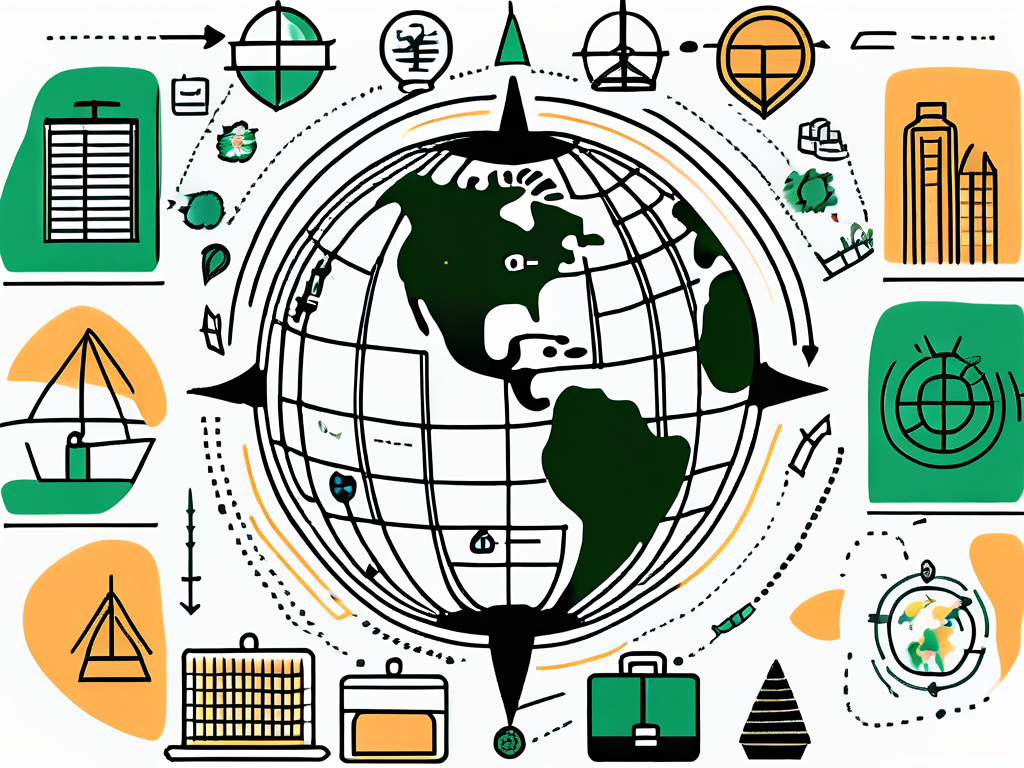Relocating to another country can be one of the most exhilarating yet daunting experiences one can face. While the allure of new experiences, cultures, and opportunities beckons, the challenges that accompany international relocation are significant. This article delves deep into the core challenges of moving abroad and offers effective strategies to overcome them.
Understanding the Challenges of International Relocation
Understanding the complexities of international relocation is crucial for successful adaptation. The transition involves numerous factors that can impact the overall experience, both positively and negatively. Let’s explore some of the key challenges that individuals and families face when moving to a new country.
The Emotional Impact of Moving Abroad
The emotional toll of moving abroad often goes underestimated. Uprooting oneself from familiar surroundings can lead to feelings of sadness, anxiety, and loneliness. Additionally, the excitement of a new beginning can sometimes be overshadowed by homesickness.
Adapting to a different environment while managing your emotional health is pivotal. Understanding these feelings is the first step towards creating a positive relocation experience. Recognizing the normalcy of such emotions can also bring relief and facilitate coping efforts. Many find solace in connecting with local expatriate communities or joining support groups, where shared experiences can foster a sense of belonging and understanding. Engaging in local activities or hobbies can also help in building new friendships, which can alleviate feelings of isolation.
Navigating Legal and Immigration Issues
Each country has its own set of immigration laws and regulations, which must be navigated carefully. The legal processes involved in obtaining work permits, residency visas, and other necessary documentation can be both confusing and time-consuming.
Failures or delays in completing the required legal paperwork can lead to significant setbacks, making it essential to familiarize oneself with the specific immigration policies of the destination country. Seeking professional legal advice can help ease this transition and ensure compliance. Additionally, staying informed about any changes in immigration laws can be beneficial, as policies may evolve. Networking with others who have undergone similar processes can provide valuable insights and tips, making the journey smoother.
Dealing with Language Barriers
Language barriers present another substantial challenge for individuals moving to new countries. An inability to communicate effectively can lead to frustration in daily life, from grocery shopping to healthcare access.
Many expatriates feel isolated due to their language limitations, which makes establishing connections with locals more difficult. However, tackling this challenge with determination can lead to rewarding interactions and a richer understanding of the new culture. Enrolling in language classes or using language-learning apps can significantly enhance communication skills. Moreover, immersing oneself in the local language through conversation exchanges or community events can accelerate learning and foster deeper connections with the community.
Adjusting to Cultural Differences
Cultural adaptation is perhaps one of the most intricate challenges of relocating. Customs, social norms, and everyday practices differ greatly across borders, requiring open-mindedness and patience.
For instance, what is considered polite in one culture may be seen as rude in another. Being able to navigate these differences is crucial for integrating into the new environment and fostering meaningful relationships. Engaging in cultural exchange programs or attending local festivals can provide insights into the host culture and promote mutual respect. Additionally, understanding the local etiquette can enhance social interactions and help avoid misunderstandings, paving the way for a more harmonious living experience.
Managing Financial Implications
The financial implications of moving abroad can be significant. This includes not only the costs associated with the move itself but also the need to adjust to new currencies, cost-of-living differences, and potential changes in employment income.
A thorough understanding of the financial landscape in the new country, including taxes, banking, and available services, is critical to avoid unexpected financial pitfalls. Planning ahead can mitigate stress associated with these changes. It may also be beneficial to consult with financial advisors who specialize in expatriate issues, as they can offer tailored advice on budgeting, investments, and retirement planning in a foreign context. Additionally, exploring local markets and understanding consumer behavior can help expatriates make informed decisions about their spending habits, ensuring financial stability during this transitional period.
Strategies to Overcome Relocation Challenges
Though the challenges of international relocation can be overwhelming, they are not insurmountable. Below are practical strategies to help ease the transition and turn the experience into a positive adventure.
Addressing emotional challenges begins with preparation. Prior to the move, having open discussions with family and friends about expectations and feelings can build a support system that eases the burden.
Moreover, practices such as journaling, meditation, or seeking professional counseling can provide outlets for expressing emotions and handling stress effectively.
Understanding and Complying with Immigration Laws
Researching your destination country’s immigration policies in advance can streamline the process of obtaining necessary documentation. Using official government website resources to access updated information can be immensely beneficial.
If navigating this legal landscape feels overwhelming, consider hiring an immigration consultant or attorney who can provide personalized guidance and streamline the process.
Learning the Local Language
Investing time in learning the local language can greatly enhance your experience abroad. Numerous apps and online platforms provide accessible language lessons that can be undertaken at your own pace.
Joining local language classes not only promotes learning but also creates opportunities to meet new people and establish friendships, which can significantly reduce feelings of isolation.
Adapting to New Cultural Norms
Open-mindedness is essential when encountering a new culture. Taking the initiative to engage with locals, participate in community events, or join cultural exchange groups can help assimilate into the new environment.
Understanding and embracing the customs, traditions, and values of your new home fosters respect and appreciation, easing the adjustment process.
Planning for Financial Changes
Financial planning plays a central role in successful relocation. Crafting a detailed budget that accounts for moving expenses, daily living costs, and unforeseen emergencies can provide a sense of control over finances.
It’s also advisable to consult with a financial advisor to understand potential impacts on taxes or retirement funds, ensuring that you remain financially secure during this transition.
Tips for a Smooth International Relocation
An organized approach to international relocation can significantly increase the chances of success. Below are some tips for ensuring a smoother transition.

Researching Your New Home
Comprehensive research about your new home can ease many concerns associated with relocation. Familiarize yourself with local amenities, neighborhoods, and recreational opportunities available.
Use online forums and social media groups to connect with current residents and gain insights that may not be readily available in travel guides.
Building a Support Network
Establishing a support network before and after the move can make a world of difference. Connect with other expatriates or locals through community organizations or online platforms.
Having a group of friends or acquaintances can ease feelings of loneliness, provide helpful information, and create a sense of belonging in the new environment.
Staying Flexible and Open-Minded
Post-relocation, it’s crucial to remain flexible and open-minded about the challenges and surprises of a new culture. Embrace the idea that not everything will go as planned, and allow yourself to adapt.
Keeping a Positive Attitude
Maintaining a positive outlook amidst the challenges of relocation can significantly influence your experience. Focus on the exciting aspects of your new surroundings, and celebrate small victories as you adapt to your new life.
Seeking Professional Assistance
Sometimes, seeking help from professional relocation services or consultants can ease the transition process. These services often offer valuable resources, from help with packing to finding appropriate housing. Consider this option if you feel overwhelmed.
In conclusion, while international relocation is filled with challenges, understanding and strategically navigating these obstacles can facilitate a rewarding experience. By preparing adequately and staying engaged, the wonders of your new adventure can flourish, creating memories for a lifetime.
















